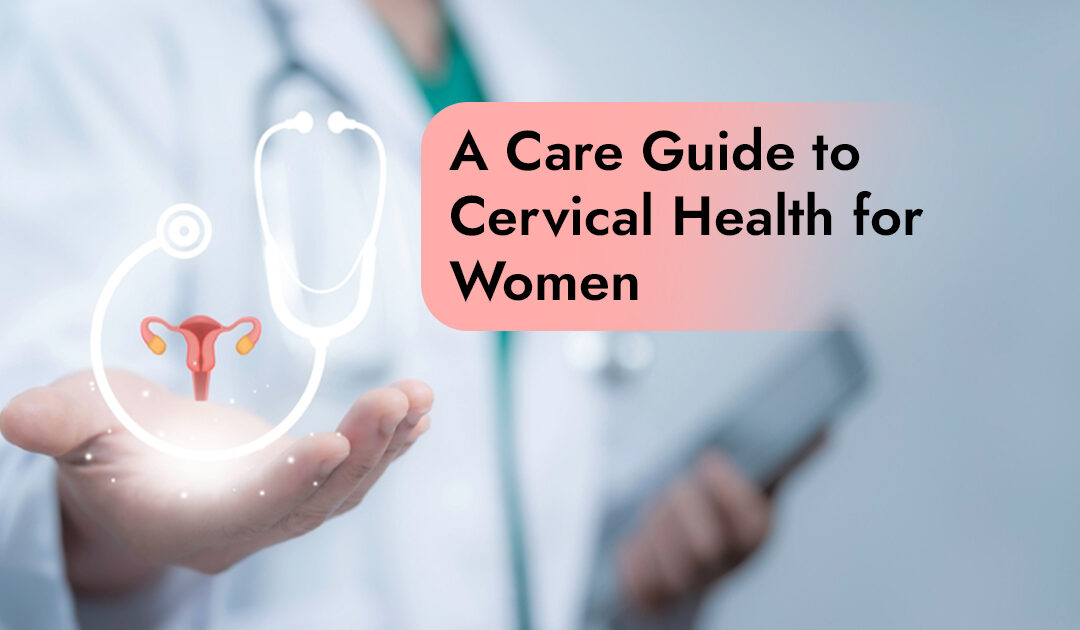Dear Women,
If you wish to enhance your overall well-being and live life to the fullest, do not neglect your friend – the cervix. If you do, you might experience infections, inflammation, and, in the worst-case scenario, even cervical cancer. January is Cervical Health Awareness Month, and that’s why I’m bringing to your attention the importance of taking care of your cervical health.
One of the key reasons that lead to poor cervical health is negligence in cervical hygiene, which makes it further prone to infections and creates a breeding ground for harmful bacteria and viruses. These germs, if not addressed in time, may lead to diseases like cervicitis or pelvic inflammatory disease (PID). These diseases cause great discomfort and pain and may even have long-term consequences if not taken care of immediately.
In addition to that, neglecting cervical health can contribute to the growth of abnormal cervical cells. If they are not attended to promptly or left untreated, they may progress to cervical cancer. To avoid late intervention, you must regularly screen yourself through PAP smears and HPV tests so there is room for early diagnosis and efficient management of cervical abnormalities.
To maintain good hygiene, you can adopt good habits such as regularly cleaning your genital area thoroughly, wearing breathable cotton underwear, participating in safe sex, and not using harsh chemical-based feminine hygiene products. These steps are crucial in keeping your cervix healthy and away from disease.
The ancient Indian method of treating diseases and medicine, Ayurveda, discusses some excellent approaches for maintaining cervical health. For instance, it talks about incorporating herbs such as Ashoka, Shatabari, and Neem into your diet, as they are known to possess properties and qualities that enhance reproductive health and protect your cervix from infections. In addition to that, Ayurvedic practices such as maintaining a balanced diet and managing stress levels also assist in contributing to your holistic well-being.
You may also lean towards relying on home remedies to improve your cervical health. Through the consumption of antioxidant-rich foods, consisting of fruits, vegetables, and more, you can strengthen your immune system and decrease the level of inflammation. Proper hydration is an underrated aspect of health, as it plays an instrumental part in flushing the toxins out of your body. By taking in the right quantities of fruits, vegetables, and cereals, you can improve your cervical health drastically. However, to create a personalized diet tailored to your food preferences, you may contact your healthcare provider.
Here are some remedies you can incorporate into your diet to improve your cervical health:
- Turmeric: Its anti-inflammatory properties can help fight infections and lessen inflammation.
- Aloe Vera: Applying aloe vera gel to the skin may relieve irritation and aid in healing.
- Garlic: With its antimicrobial qualities, garlic can help in preventing infections.
- Cranberry: Eating cranberries or drinking cranberry juice may help prevent urinary tract infections, which can indirectly support cervical health.
- Vitamin C-rich fruits: Citrus fruits like oranges, lemons, and berries can strengthen your immune system and enhance healing.
- Leafy greens: Vegetables such as spinach and kale provide essential vitamins and minerals that are important for overall health.
- Broccoli: Packed with antioxidants, broccoli helps your body defend against harmful substances.
- Carrots: Carrots are a great source of beta-carotene, which may be beneficial for cervical health.
- Whole grains: Foods such as brown rice, quinoa, and oats provide fiber and nutrients that support reproductive health.
- Flaxseeds: These seeds are rich in omega-3 fatty acids, which can help reduce inflammation.
In conclusion, maintaining cervical health is crucial for your overall well-being and can be supported through a balanced diet rich in essential nutrients. Incorporating anti-inflammatory foods, antioxidants, and fiber into your meals can help prevent infections and promote healing. Regular check-ups and being aware of your body are also important in ensuring cervical health. By taking proactive steps, such as eating a variety of fruits, vegetables, whole grains, and healthy fats, you can foster a healthier reproductive system and enhance your overall quality of life. Prioritizing cervical health is not just about prevention; it’s about empowering yourself to live a healthier, happier life.

